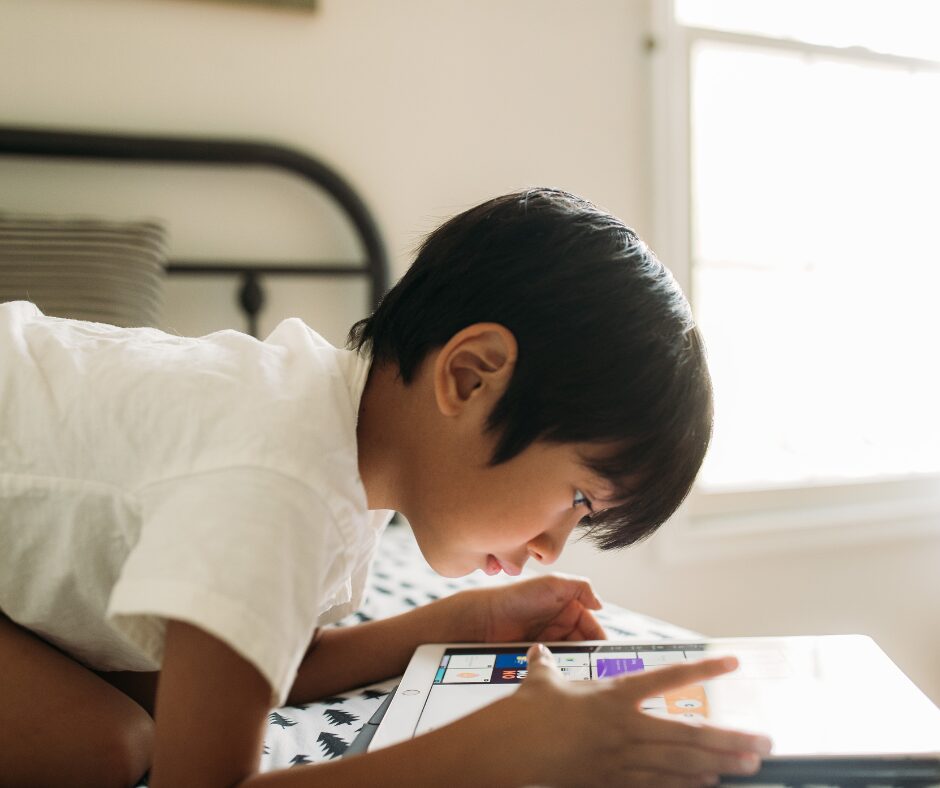There is an entire economy built on grabbing your attention and holding it for as long as possible on a screen, and they don’t care how well you sleep at night. The internet can have a positive or negative impact on your sleep, depending on how you use it. Here is what you need to know about finding the balance between screen time and sleep.
The time we spend on our screens serves a purpose and there are positive types of media out there. Maybe it’s helping keep your child occupied while you get dinner on the table, or it’s a chance to unwind together. Everyone deserves a break and internet scrolling, playing games or shopping can be fun. That’s perfectly ok within moderation.
Sign Up For Our Newsletter
Mental Health Implications
Medical professionals warn that excessive media consumption, more than four hours per day, is having a lasting effect on our youths’ mental health. By habitually consuming media we get addicted to the dopamine rush. The American Academy of Pediatrics recommend no more than one hour of screen time for children ages 2 through 12 years old. Teens and adults are recommended to keep media consumption under two hours per day.
Masking Our Sleepiness
Matthew Walker who is a professor of neuroscience and psychology at the University of California, Berkeley, sleep expert, and author of the bestseller Why We Sleep, says this about why our devices should be avoided before bedtime. “Over the years there’s been some great work done by a university in Australia called Flinders University, and Michael Grandisar’s done some great work on this. He has changed my mind. I’m less bullish now about the idea that these devices that we use are sleep disruptive because of the blue light. I still think that has an effect, but what I think he’s shown in some elegant work is that it’s less about the light. It’s more about the fact that we are masking our sleepiness with this overriding activation from the devices. So, I’ve actually downregulated my belief in the effects of blue light, and I’ve introduced this new mental framework regarding the effects of the invasion of technology into our evening lives and our bedrooms. I’m much more now enamored with this idea that they are mentally stimulating, rather than blue light emitting.”
Be a Good Role Model
As your child matures, you can teach them why we must put healthy boundaries between screen time and sleep. Something to model for them right now is turning off your own devices and putting them away one to two hours before bedtime. A good rule of thumb is to reduce screen time after dinner and eliminate screens during your child’s bedtime routine.
Making Ending Screen Time Easier
Communication is key for an easier transition away from screens in the evenings. Set clear expectations about how screen time will be all done for the day once that show ends, or that game level is over. Transitioning from screen time directly into dinner or your bedtime routine can be hard for kids. You can offer to play something else with them for five minutes like tag, hide and seek, cards, Legos, playdough and then transition to dinner, when they’ve had a minute to gather their thoughts.
Finding the balance between screen time and sleep is a journey, rather than a destination. The amount of screen time you allow isn’t a reflection of your worth as a parent. Don’t be too hard on yourself if you can’t reach your goals right away, or if things get off track. It’s normal for some days to have more screen time than others. You can start by noticing when the screen is on and asking yourself: “could this screentime be replaced with something else?” Like outside time, independent play, playing with pets, reading together, or doing work around the house together.










